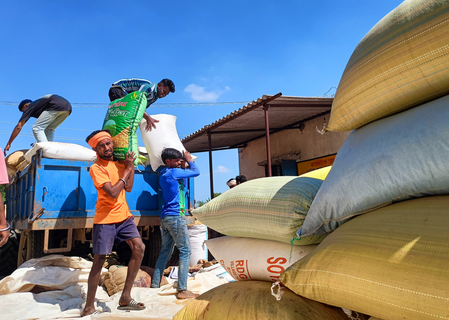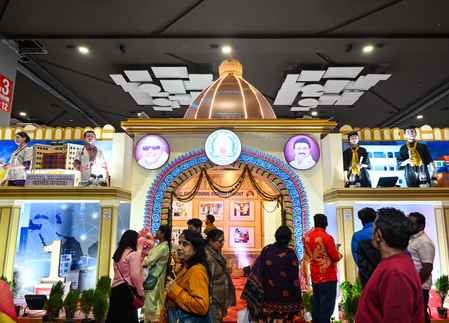
New Delhi, Nov 28 (IANS) The recent consolidation of India’s labour laws will significantly benefit the safety, health, and welfare of dock workers through compulsory registration of docks, universal social security coverage and heightened safety standards, official data showed on Friday.
Under the reforms, docks must register as establishments, ensuring official recognition of the dock, enabling workers to access legal rights, claim entitlements, and seek redress, the official statement said.
Establishments must maintain records and comply with mandated safety, health, and welfare standards, enhancing accountability.
Earlier, many docks operated without formal registration, limiting regulatory oversight and denying workers basic legal protections. Dock workers, especially those employed casually or indirectly, were previously excluded from social security benefits.
The Code on Social Security and the Occupational Safety, Health and Working Conditions Code extend universal coverage under provident fund, pension and insurance coverage to all dock workers, including contract and temporary staff.
Further, the new laws mandate appointment letters and formal recognition of service, ensuring inclusion in social security databases, the statement said.
The new labour codes also introduced digital platforms for dock registration, compliance, and benefit delivery.
Online registration, documentation, and reporting are expected to improve transparency and reduce delays, while e-governance for wages, complaints, and benefits ensures efficiency and minimises disputes.
The labour codes also enable interstate and cross-regional portability of social security records to support worker mobility, the government said.
Safety provisions now cover all dock employees, mandating annual employer‑funded health checkups that improve early detection of occupational health risks.
Further detailed risk assessments and preventive measures address dock-specific hazards, including falls, fire, explosions, noise, and exposure to hazardous substances.
The laws also set certified lifting devices, protective gear and lifesaving appliances as a legal requirement, along with on‑site medical facilities, first aid, sanitary areas, drinking water and rest areas, the statement noted.
–IANS
aar/na




